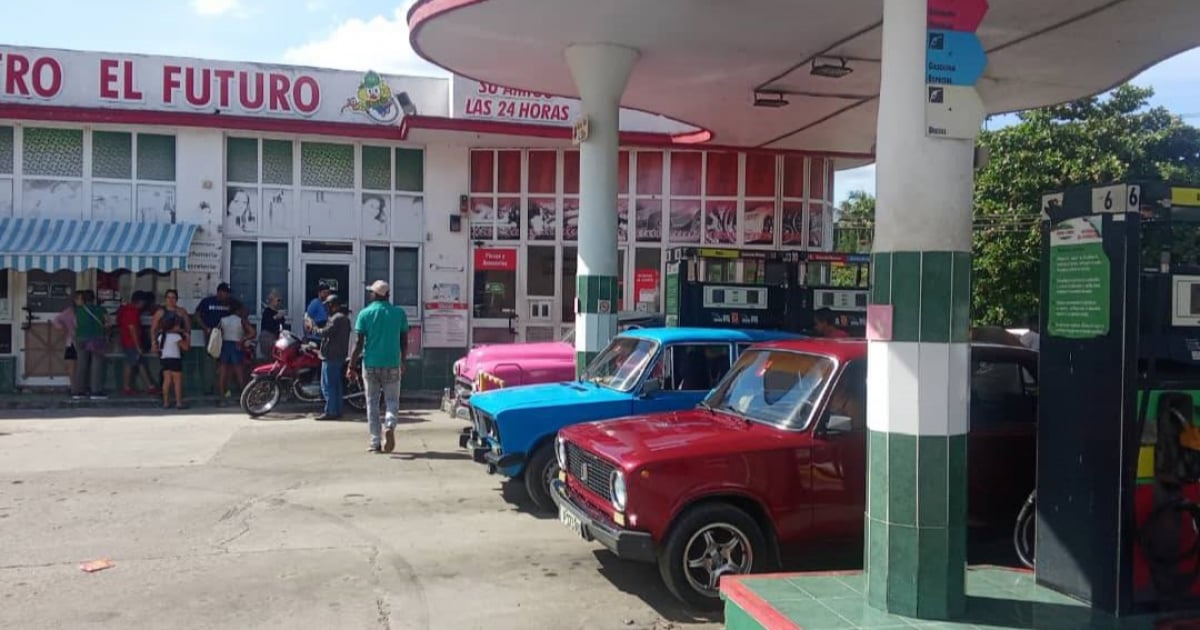In a bid to project an image of control and address growing public discontent, Cuban authorities conducted a "neighborhood debate" in the Santo Suárez district of Havana. The meeting aimed to tackle illegal activities and corruption in fuel sales—a problem exacerbated by the government's own inefficient economic management.
The newspaper Tribuna reported that officials from the Prosecutor's Office and the Police disclosed the recent arrest of individuals involved in hoarding and reselling gasoline, or charging for spots in line—commonly referred to as "line waiters"—at the Alameda service station located at Santa Catalina and Poey.
Rolando López Merino, the chief prosecutor of the municipality, stated that those participating in the black market for fuel will face harsh penalties, as their crimes come at a time when the nation is grappling with a severe energy crisis, which will be considered an aggravating factor during trials.
Despite this tough talk, López Merino's remarks overlooked the root causes of the issue, which stem from governmental mismanagement, corruption within state enterprises, and a lack of transparency in resource distribution.
Additionally, the meeting revealed a police operation that dismantled a storage house filled with gasoline intended for illicit resale. Meanwhile, the head prosecutor of Havana, Lisnay María Mederos Torres, announced upcoming operations at other service stations and warned that those responsible could face charges of embezzlement and bribery.
She also disclosed that officials from CUPET, CIMEX, the Ministry of the Interior, and the government will appear on television programs "Buenos Días" and "Hacemos Cuba" to explain organizational measures planned to regulate the city's fuel supply.
Pointing Fingers at the Small Fish While the Big Ones Swim Free
In yet another effort to encourage Cubans to report on one another, officials leading the neighborhood debate urged residents to report these crimes and provided the local police command center's phone numbers.
While the government intensifies punishment against resellers, high-ranking officials who manage fuel and other essential products remain untouched, perpetuating corruption within the state apparatus. These propaganda meetings routinely blame ordinary citizens for systemic issues rooted in the government's inefficiency and a failed economic model.
Empty Words Amid Crisis and Repression
As the government fills the media with rhetoric about combating illegalities, Cubans continue to face rampant inflation, a booming black market, and a plummeting economy. The shortage of fuel, food scarcity, and crumbling basic services are symptoms of a crisis that cannot be resolved through police crackdowns or community gatherings.
The so-called neighborhood debates are merely attempts to divert attention from the state's ineffectiveness, blaming desperate citizens struggling to survive in a country where essential goods have become an unattainable luxury. Meanwhile, those truly accountable for the crisis remain unscathed, refusing to take any responsibility for Cuba's collapse.
Understanding Cuba's Fuel Crisis and Systemic Issues
What actions are authorities taking against fuel resellers in Havana?
Authorities are conducting neighborhood debates to discuss the crackdown on fuel resellers, with recent arrests made. They plan to carry out further operations at various service stations.
Why is the fuel black market a significant issue in Cuba?
The black market for fuel is significant because it exacerbates the country's existing energy crisis, which is worsened by government mismanagement, corruption, and lack of transparency in resource distribution.
How does the Cuban government plan to address the fuel distribution issues?
The government intends to implement organizational measures to regulate fuel supply, with officials discussing these plans on television programs to inform the public.
